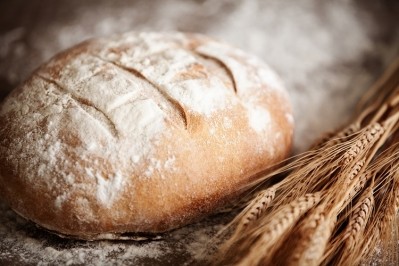How should Europe manage the fertiliser crisis? ‘The market is overly dependent on one single country: Russia’

Europe is facing a fertiliser crisis.
Prior to Russia’s military invasion of Ukraine earlier this year, crop nutrition prices were already on the up. However, as gas is a key input in nitrogen fertilisers, and Russian supply is now limited in Europe, fertiliser prices have soared.
As a result, farmers are struggling to buy plant food And what they can get their hands on, is often cripplingly expensive. Using less fertiliser can negatively impact crop yield and consequently, food production.
How can European businesses and regulators mitigate the impacts of the Ukraine-Russia war on the fertiliser sector?
‘Europe needs to be more resilient’
Russia is the world’s second-largest producer of natural gas, behind the US. According to 2021 figures, the country produced 762 billion cubic metres (bcm) of natural gas, and exported approximately 210 bcm via pipeline.
As nitrogen fertiliser is produced from natural gas, sanctions on Russia’s supply to Europe is significantly impacting the cost of fertiliser inputs.
“The war on Ukraine is having a lot of direct and indirect consequences on the whole food value chain, and fertilisers are at the very beginning of it,” according to Tiffanie Stephani, Director, European Government Relations and External Communications, at Yara.
Yara is considered the largest crop nutrition player in Europe. The company is ‘deeply disturbed’ by the Ukraine-Russia conflict and ‘strongly condemns’ Russia’s military invasion, Stephani told delegates at last month’s European Food Forum (EFF) event.
For the European Government Relations lead, the effect of the war on the fertiliser sector is ‘quite clear’: “It has revealed that European and the world’s fertiliser markets have been overly dependent on one single country: Russia.”
Russia supplies around 45% of the global ammonia nitrate market, around 20% of the global potash market, and 14% of global phosphate fertiliser exports.
“The current situation is showing that our food system in Europe needs to be more resilient.”
Mitigating the impacts of war
How can Europe reduce its dependence on Russian resources? According to Yara, the first solution lies in diversifying its raw material sources.
The ‘prerequisite’ in sourcing natural gas from elsewhere is that Europe requires ‘continued and undisrupted’ access, we were told. “For now, gas remains the primary critical input factor for the production of nitrate fertilisers.”
Concerning other relevant inputs, most compound fertilisers contain three essential elements for growth: nitrogen, phosphorous, and potassium. Together, these nutrients are known as NPK.
Last year, Russia was the largest exporter of NPKs, which means fertiliser producers need to look elsewhere for these inputs. “New product capacity can be developed in the medium-term,” suggested Stephani. “But as we are talking about minerals, that can be mined, you cannot just start a new mine [immediately].”
The second solution, according to Yara, is to decarbonise the sector’s activities. The company is working to replace natural gas in fertiliser production with renewable energy, which it believes could be a ‘game changer’ in reducing reliance on Russian resources.
Of course, it would also serve to decarbonise the agri-food system.
“The prerequisite here is that investments in renewable energy and new infrastructure in Europe are really key and would have to be accelerated.”
Yara expects its first fossil free fertiliser to reach the market in 2023 and has signed its first commercial contract for the product with Swedish agricultural cooperative Lantmännen.
Instead of using fossil fuels such as natural gas to produce ammonia - the building block of mineral fertilisers - Yara's 'green fertilizers' will be produced with ammonia based on renewable energy produced in Europe, such as Norwegian hydropower. The company expects these fertilisers will have an 80-90% lower carbon footprint.

The third solution designed to mitigate the impacts of war on the fertiliser sector lies in accelerating circular economy practices. Many in the industry are already working to optimise resources and recycle by-products in production processes, but Stephani suggested more could be done.
“Using the organic materials of fertilisation can still be scaled up and we can recover more quality nutrients from processed waste.”
‘We must impose taxes on Russian gas’
Others believe more drastic measures should be taken.
Oil and gas are crucial to agricultural production, explained Petri Krogman, Chairman of the Board of Directors of agribusiness management business Agromino in Ukraine and owner of Czech agricultural association Spojené Farmy (United Farms).
“Ukraine was able to sow around 70-80% of its areas for agricultural production, but we have to realise that all the remaining areas that were sown will have lower yields. There is not enough fertiliser,” he told delegates at the EFF event.
At the same time, without oil, farmers will struggle to harvest these crops. “There is not enough oil and gas to run the machines…if you do not have oil, you [cannot] harvest.”
Diversifying Europe’s oil and gas inputs for Krogman means blacklisting Russia. The agricultural expert argued taxes ‘must’ be imposed on Russian gas and oil, in order to send the ‘proper’ signal to businesses.
Companies will not place a ban on Russian oil and gas voluntarily, he continued. It must come from the top – from either the European Commission or from individual Member States.

If Ukraine loses the war, and Russia pushes into the EU, Krogman is concerned the Kremlin could take control of agricultural production in eastern and ‘middle’ European countries.
“Through famine and migration, they will easily destabilise the political system of EU countries.”
Krogman continued: “We must stop producing fertilisers in the middle of Europe with Russian gas.”
Rather, he believes production should be shifted to seashore states with liquefied natural gas (LNG) terminals, and made with non-Russian gas. Or ‘even better’, be imported from ‘north America and elsewhere’.

























